In the heart of Cross River State, Nigeria, lies a small but fascinating community, Ubang. This rural area in the Obudu Local Government Area is home to one of the world’s most unusual language phenomena: men and women in Ubang speak entirely different languages. While linguistic differences between ethnic groups or regions are not uncommon, what sets Ubang apart is that men and women within the same community speak distinct languages yet understand each other perfectly.
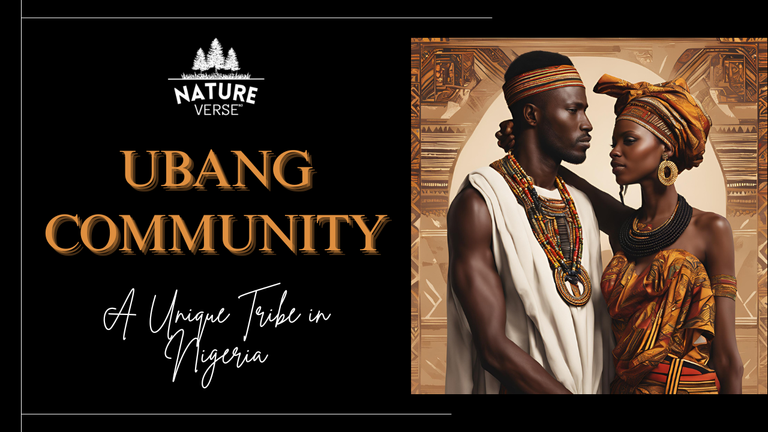
A Glimpse into a Unique Culture
Ubang, a small farming community in the lush highlands of Cross River State, Nigeria, has a rich history and culture, but it remains relatively unknown outside of its region. The people of Ubang primarily engage in farming, growing crops such as yams, cassava, and maize. Despite its small size, the community has gained worldwide attention due to its rare linguistic tradition.
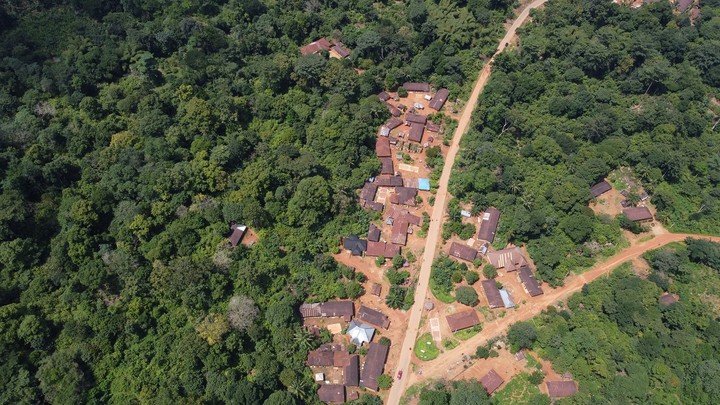
Image gotten from Nairaland
Men and women in Ubang speak languages that differ mostly in vocabulary rather than structure or grammar. Men and women use different words to describe the same objects or behaviors, but they understand each other well. For example, a guy may say "bamu" for "water," whereas a lady might say "amie." Similarly, what men call "okpum" for "tree," women call "lilin." This linguistic contradiction, while difficult for outsiders to understand, is very easy for the people of Ubang.
One of the most amazing aspects of this communication obstacle is that both men and women are raised speaking the female language. Boys, on the other hand, begin speaking in the masculine language around the age of ten. This change is regarded as a rite of passage, signifying the passage from boyhood to manhood. There is no explicit instruction or preparation for this transition; boys naturally adopt male language when interacting more with male family members and peers. Women, on the other hand, speak the female language all their lives. Despite these linguistic disparities, both genders may communicate clearly and effectively. This distinctive language is so embedded in their daily lives that they do not consider it remarkable, however, it does stand out to those unfamiliar with the custom.
The question that naturally arises is how these languages can coexist without creating confusion. The solution lies in the community's long-standing cultural traditions and social practices, which have permitted these two vocabularies to coexist. Both men and women grew up hearing each other's languages, so understanding them is easy.
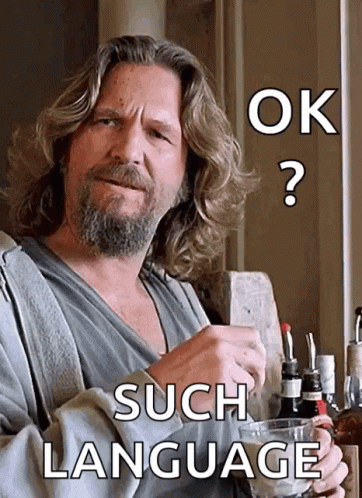
For the Ubang people, this language tradition is more than just a uniqueness of their culture; it is a symbol of their identity and a supernatural blessing. According to some of the community people, God created men and women in Ubang and blessed them with different languages. This story has been passed down through the centuries, supporting the community's faith in the purity of its language diversity.
Many Ubang people believe that the two languages are crucial for sustaining gender roles in the community. Men and women, despite living and working together, have separate societal duties, and their language split reflects this difference. The male and female languages are not just tools for communication; they are cultural markers that define social relationships and responsibilities.
Preserving a Unique Tradition: Challenges Ahead
As with many aged activities, the language mystery of Ubang is at risk of decline due to modern influences. The younger generation, especially those who leave the village for school or jobs in cities, is less likely to completely embrace the practice. English, Nigeria's official language, is increasingly spoken by young people, and modern influences such as television, radio, and the Internet have created new forms of communication that may overtake local traditions.
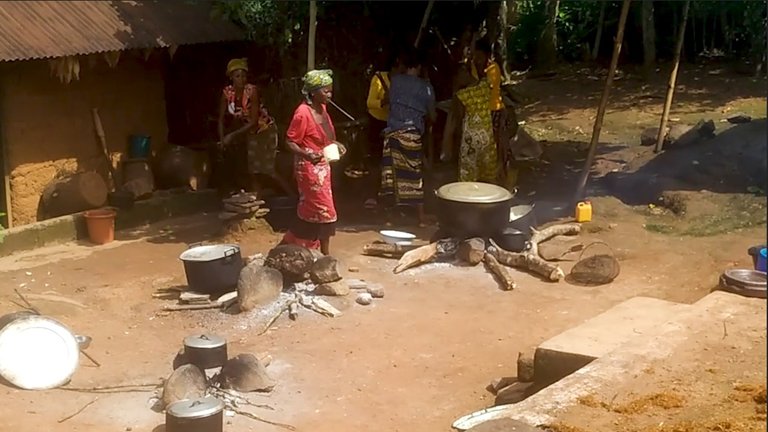
Image gotten from Nairaland
Efforts to preserve the Ubang languages are ongoing, but obstacles persist. Linguists and cultural preservationists are documenting the language differences in the hopes of maintaining the customs for future generations. However, as the world becomes more interconnected, it remains to be seen if Ubang's language diversity can withstand the effects of modernization.
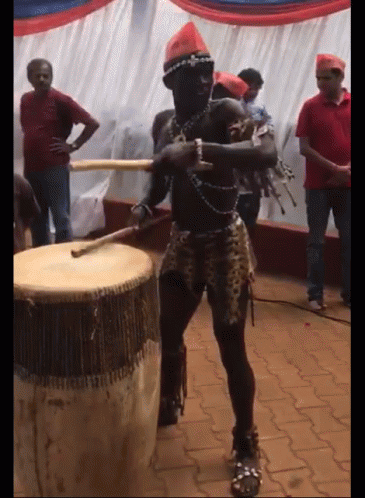
The Ubang community's language mysterious serves as an important reminder of the diversity of human language and culture. In a world where languages are quickly vanishing, Ubang exemplifies the strength of tradition and the value of cultural identity. While the reasons for this distinct language difference may remain unknown, the practice itself celebrates the diversity of human expression.
For the inhabitants of Ubang, their dual-language system represents more than just a means of communication; it is a reflection of their identity. As the world changes around them, this small village in Cross River State preserves its language history, reminding us all of the beauties and complexities of human culture.
See you in my next blog post👌

For years, linguists, anthropologists, and interested observers have been captivated by this cultural abnormality. How did this come about? Why does this town preserve its language diversity? And, most significantly, what does it reveal about the importance of language in human society? In this blog, we'll look at the interesting world of Ubang, including its history, relevance, and theories.
A Glimpse into a Unique Culture
Ubang, a small farming community in the lush highlands of Cross River State, Nigeria, has a rich history and culture, but it remains relatively unknown outside of its region. The people of Ubang primarily engage in farming, growing crops such as yams, cassava, and maize. Despite its small size, the community has gained worldwide attention due to its rare linguistic tradition.

Image gotten from Nairaland
Men and women in Ubang speak languages that differ mostly in vocabulary rather than structure or grammar. Men and women use different words to describe the same objects or behaviors, but they understand each other well. For example, a guy may say "bamu" for "water," whereas a lady might say "amie." Similarly, what men call "okpum" for "tree," women call "lilin." This linguistic contradiction, while difficult for outsiders to understand, is very easy for the people of Ubang.
One of the most amazing aspects of this communication obstacle is that both men and women are raised speaking the female language. Boys, on the other hand, begin speaking in the masculine language around the age of ten. This change is regarded as a rite of passage, signifying the passage from boyhood to manhood. There is no explicit instruction or preparation for this transition; boys naturally adopt male language when interacting more with male family members and peers. Women, on the other hand, speak the female language all their lives. Despite these linguistic disparities, both genders may communicate clearly and effectively. This distinctive language is so embedded in their daily lives that they do not consider it remarkable, however, it does stand out to those unfamiliar with the custom.
The question that naturally arises is how these languages can coexist without creating confusion. The solution lies in the community's long-standing cultural traditions and social practices, which have permitted these two vocabularies to coexist. Both men and women grew up hearing each other's languages, so understanding them is easy.

For the Ubang people, this language tradition is more than just a uniqueness of their culture; it is a symbol of their identity and a supernatural blessing. According to some of the community people, God created men and women in Ubang and blessed them with different languages. This story has been passed down through the centuries, supporting the community's faith in the purity of its language diversity.
Many Ubang people believe that the two languages are crucial for sustaining gender roles in the community. Men and women, despite living and working together, have separate societal duties, and their language split reflects this difference. The male and female languages are not just tools for communication; they are cultural markers that define social relationships and responsibilities.
Preserving a Unique Tradition: Challenges Ahead
As with many aged activities, the language mystery of Ubang is at risk of decline due to modern influences. The younger generation, especially those who leave the village for school or jobs in cities, is less likely to completely embrace the practice. English, Nigeria's official language, is increasingly spoken by young people, and modern influences such as television, radio, and the Internet have created new forms of communication that may overtake local traditions.

Image gotten from Nairaland
Efforts to preserve the Ubang languages are ongoing, but obstacles persist. Linguists and cultural preservationists are documenting the language differences in the hopes of maintaining the customs for future generations. However, as the world becomes more interconnected, it remains to be seen if Ubang's language diversity can withstand the effects of modernization.

The Ubang community's language mysterious serves as an important reminder of the diversity of human language and culture. In a world where languages are quickly vanishing, Ubang exemplifies the strength of tradition and the value of cultural identity. While the reasons for this distinct language difference may remain unknown, the practice itself celebrates the diversity of human expression.
For the inhabitants of Ubang, their dual-language system represents more than just a means of communication; it is a reflection of their identity. As the world changes around them, this small village in Cross River State preserves its language history, reminding us all of the beauties and complexities of human culture.
See you in my next blog post👌